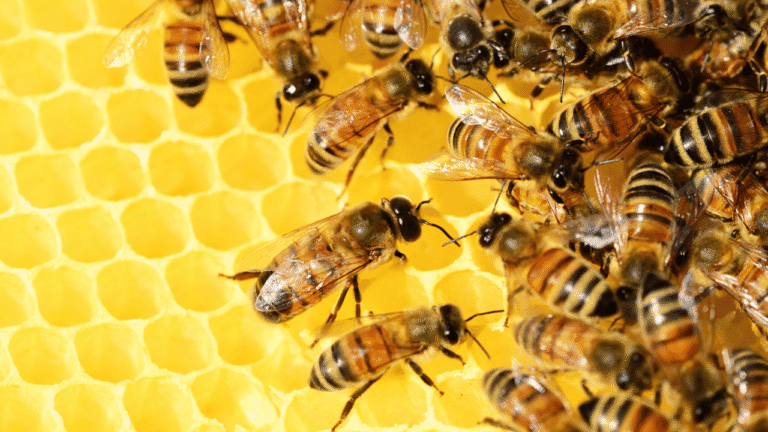Conquer Your Goals How to Avoid Distractions and Stay Focused

How to Avoid Distractions and Stay Focused? In today’s world, it’s easy to get lost in digital noise and multitasking. But, focusing is a skill you can learn. It’s about setting clear goals and using the right strategies to stay on track.
It’s hard to stay focused with so many distractions around. Social media and other distractions can pull you off course. But, by recognizing what distracts you and setting boundaries, you can stay focused.
Try the Pomodoro Technique to work in focused bursts. It helps you stay concentrated and avoid burnout. Mindfulness also helps by keeping you in the moment and improving your focus.
It’s not about avoiding all distractions. It’s about finding a way to stay focused despite them. By adjusting your environment and mindset, you can make focus a habit.
Key Takeaways
- How to Avoid Distractions and Stay Focused? Adopt the Pomodoro Technique for maintaining focus while minimizing burnout.
- Practice mindfulness to enhance presence and alignment with your core objectives.
- Implement SMART goals for practical, trackable progress.
- Build environments and routines tailored to reinforce concentration and minimize interruptions.
- Foster a positive mindset and a supportive network for sustained goal pursuit.
- Incorporate regular health and wellness practices, such as exercise, to support mental clarity.
Understanding Distractions and Their Impact
In today’s fast-paced world, it’s key to focus without distractions. Whether it’s our own doubts or outside interruptions, they can really mess with our ability to stay on track. By learning how to avoid these distractions, we can improve our concentration and get more done.
The Science Behind Distraction
Distractions make it hard for our brains to stay focused. They pull our attention away from important tasks. This constant switching can slow us down and lower the quality of our work. Knowing this helps us find ways to work more intentionally.
Common Sources of Distractions
Distractions come from many places, like digital alerts and office talk. Even our own wandering minds can be a distraction. Technology, while useful, can also be a big distraction. Finding ways to deal with these can make our work more efficient.
How Distractions Affect Productivity
- Constant interruptions can make it hard to finish projects on time. Each distraction takes time to get back into focus.
- Being around distractions a lot can make us stressed and anxious. This makes it harder to work well.
- Too many distractions can make us get frustrated easily. Even small things can seem too much to handle.
Working without distractions is not just about doing better at our jobs. It’s also about taking care of our mental health. Creating environments and strategies that help us stay focused can greatly improve our lives and careers.
How to Avoid Distractions and Stay Focused Setting Clear Goals for Focused Efforts

In the quest for peak productivity, setting clear goals is key. Goals guide our actions and keep us moving forward. They make every effort count. To get the most from goal-setting, use the SMART goals framework.
SMART stands for Specific, Measurable, Achievable, Relevant, and Time-bound. This framework helps you set goals that are clear and reachable. It ensures your goals align with your bigger dreams.
A SMART goal might be to increase sales by 20% in six months through marketing. This goal is clear and measurable. For more on setting effective goals, check out this article on goal-setting strategies.
Defining SMART Goals
SMART goals are a powerful tool for focused individuals. They break down big goals into smaller, achievable steps. For example, setting a goal to write a book becomes manageable with SMART goals.
With SMART goals, you can specify your targets and track your progress. This helps you stay on track and adjust as needed.
Aligning Goals with Your Values
Aligning your goals with your values is also key. This makes your goals more meaningful and personal. When your goals reflect your values, every step forward is a step towards your vision.
This alignment helps you stay focused and committed. It improves your productivity and personal growth. Remember, clear goals lead to success.
How to Avoid Distractions and Stay Focused Creating a Distraction-Free Environment

In today’s world, distractions are everywhere. It’s key to create a distraction-free environment for efficient studying and work. A tidy workspace not only minimizes distractions but also boosts your productivity and focus.
Setting up your workspace is more than just cleaning. It’s about planning and adding personal touches. Keeping your desk clean with only what you need helps avoid mental clutter. Having your tools close and storing away what you don’t need helps keep your workflow smooth.
Also, minimizing digital interruptions is vital for a good study space. Turning off notifications or using apps to block distracting websites helps you focus. It’s about setting digital boundaries, just like physical ones.
For those who get distracted by noise, tools like noise-canceling headphones can help. They let you focus on your work, whether it’s calming music or complete silence.
The aim is to make a space that fits your work style and cuts down on distractions. This way, you can work more efficiently and creatively. Every detail, from furniture to decor, helps create a space that encourages deep work and prevents burnout.
By improving your physical and digital space, you boost your focus and productivity. Your workspace becomes a place of efficiency and focus.
How to Avoid Distractions and Stay Focused The Power of Time Management Techniques

Learning to manage your time is key to being more productive and focused. Discovering and using strategies like the Pomodoro Technique, time-blocking, and smart task prioritization can help. These methods help you avoid distractions and work more efficiently.
The Pomodoro Technique is a well-known method. It involves working in focused 25-minute intervals with short breaks in between. This method keeps your attention sharp and helps you stay focused for longer periods. It makes your work sessions more productive and of higher quality.
Time Blocking divides your day into specific time slots for each task. This ensures each task gets the attention it needs without overlapping with others. It helps you stay focused and avoid the inefficiency caused by switching between tasks too often.
Using the Eisenhower Box to prioritize tasks can be very helpful. It sorts tasks by urgency and importance. This way, you focus on the most critical tasks first. It helps you understand that not all tasks are equal and some need immediate action.
- Helps resist the urge to give into distractions immediately.
- Teaches that not every distraction needs immediate attention.
- Builds self-control and strengthens the ability to focus.
- Encourages extending focus periods over time as self-discipline improves.
Using these time management techniques boosts your concentration and changes how you handle daily tasks. Whether you’re working on a big project or managing many tasks, these strategies help you stay at the top of your game. They help you reach your goals efficiently.
How to Avoid Distractions and Stay Focused Cultivating Healthy Habits for Better Focus

Starting a journey to improve focus and clear thinking is easier with a few key strategies. These healthy habits boost well-being and help keep concentration sharp. They also make us more productive.
It’s important to see how our body and mind work together. We’ll explore the best ways to improve your mental sharpness.
The Role of Sleep and Nutrition
Getting enough sleep is key for improving focus. Experts say we need 7-9 hours each night for our brains to work best. Eating well is also crucial. A Mediterranean diet, full of whole foods and healthy fats, helps keep our minds focused.
Mindfulness and Meditation Practices
Adding mindfulness practices to our daily lives boosts our thinking skills. Meditation, in particular, sharpens our focus and mental clarity. Just a few minutes of deep breathing each day can improve focus and lower stress.
Regular Exercise to Boost Concentration
Exercise is more than just for our bodies. It’s great for our minds too. It boosts dopamine, norepinephrine, and serotonin, which help us stay focused. Even short walks or 30-minute workouts can greatly improve our mental fitness.
- Develop consistent sleep routines, avoiding blue light before bedtime.
- Practice meditation to calm the mind and center thoughts.
- Perform physical activities that are enjoyable and keep you motivated.
By adopting these habits, we not only improve our mental performance but also our overall quality of life. Success in work and personal life often starts with our ability to stay focused and clear-minded. Healthy habits are the foundation.
How to Avoid Distractions and Stay Focused Leveraging Technology to Stay On Track

In today’s digital world, using technology for focus is key to being productive. It helps us stay on task and reach our best. Let’s look at how productivity apps and focus mode can change how we work.
Almost half of our computer time can hurt our productivity. We need digital tools to help us focus. Apps like Trello and Asana help manage tasks and keep everyone in sync.
Tools like RescueTime track how we use apps and websites. This shows us where we might get distracted. It helps us stay focused.
- Forest and StayFocused help us stay away from phones. They reward us for staying off our phones.
- Browser extensions like Stay Focused block distracting sites. They help us focus during important work times.
Turning on focus mode on devices helps too. It stops non-essential notifications. This lets us work without interruptions.
Technology helps us plan and stay accountable. A study from the University of California Irvine found a 30% increase in productivity with time tracking software. It helps us improve our work habits.
Digital tools like Apple Screen Time limit device use. They prevent burnout from too much screen time. Writing apps like Omm Writer offer quiet spaces for writers to focus.
By using these technologies every day, we can improve our focus and time management. Technology for focus is essential for keeping up with today’s fast-paced world.
Reflecting and Adjusting Your Focus Strategies
Mastering focus and achieving goals requires self-analysis. Our attention is short, lasting only 40 seconds online. After distractions, it takes 22 minutes to refocus. This is why reflection is key.
Regularly check what works and what doesn’t. This helps spot distractions, whether from ourselves or others. It’s about being honest with how we’re doing.
Improvement isn’t always straight. Being too rigid can hold us back. For example, the right room temperature can boost our work. Adjusting our environment helps.
Self-interruptions can cost a lot of time. Breaking tasks into smaller steps helps. It makes goals feel more achievable and fun.
Success comes from working with others. Having accountability buddies helps us improve. SMART goals and reminders keep us on track.
Rest is crucial for long-term focus. It keeps our minds sharp and clear. Taking breaks is essential for success.
Questioning our focus strategies shows we’re growing. It helps us stay on track and achieve more. It’s about being proactive and adaptable.












